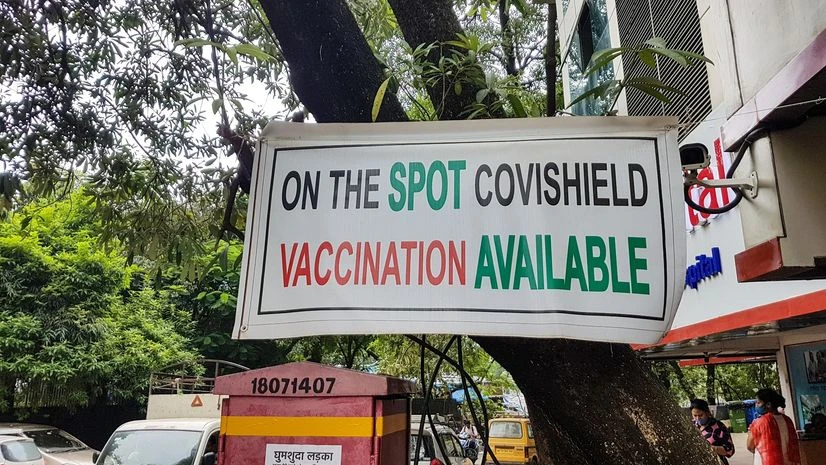In the UK, AstraZeneca faces legal challenges as about 75 individuals have alleged its Covid-19 vaccine caused deaths and serious injuries, such as thrombosis with thrombocytopenia syndrome (TTS).
In India, however, the impact on Covishield users is limited by several factors. Given the oversight of different regulatory bodies and that Covishield is produced locally by Serum Institute of India, Indian users may not be able to join the British lawsuit. Advocate Manisha Karia from the Supreme Court of India outlines legal steps affected Indians might consider:
1. Drug and Cosmetics Act Grievance: Complaint against the manufacturer and the approving authority.
2. Consumer complaint for Product Liability: Seek damages under the Consumer Protection Act, 2019.
3. Criminal complaint: Addressing severe cases under sections of the Indian Penal Code, 1860.
4. Civil suit for damages: Pursue compensatory damages through civil courts.
More From This Section
5. Compensation for fatal accidents: Action under the Fatal Accidents Act, 1855, for bereaved families.
Notably, Covishield has been administered through 1.75 billion doses in India.
What are the rights available to a patient/patient's relative?
Sumit Jay Malhotra, principal associate at Hammurabi & Solomon Partners, clarifies: "All the affected persons... are entitled to claim compensation from the pharmaceutical company by instituting a product liability action for the harm caused by a defective product manufactured by a product manufacturer or services rendered." He adds that affected individuals can:
— Pursue compensation claims for defective products or services.
— Initiate criminal action for grievous harm.
— File a Public Interest Litigation (PIL) covering issues from environmental to medical negligence.
"All affected persons who purchased the anti-coronavirus and consequently suffered injury by taking it would fall within the meaning of a ‘consumer’ under CPA 2019. Consequently, the complainants are entitled to claim compensation under CPA 2019 from the pharmaceutical company by instituting a product liability action for the harm caused by a defective product manufactured by a product manufacturer or services rendered. Vicarious liability can also be imputed on the hospital/doctor administering the anti-coronavirus vaccine," explains Sumit Jay Malhotra. Malhotra further notes that affected individuals can seek redress through criminal action, and potentially file a Public Interest Litigation (PIL) for broader systemic issues.
What should accompany a complaint, as in the case of AstraZeneca?
If any individual having been administered with Covishield suffers a medical condition such as thrombosis, they must:
— Provide a detailed factual background.
— Supply medical evidence such as bills, prescriptions, and expert opinions.
"In the case of any other medical negligence too, detail the complaint stating factual background including date, time, place, and details of the victim along with injuries or losses suffered. The complaint must be accompanied by relevant proof including bills and prescriptions, medical certificates, and an expert opinion," suggests Manisha Karia.
But does the AstraZeneca case qualify as medical negligence?
No, it does not qualify as medical negligence.
"All vaccines, including the Covishield vaccine, qualify as drugs covered under the Drugs and Cosmetics Act, 1940. The admission by AstraZeneca that in a minuscule percentage of cases, it could have a side effect of causing thrombosis, is not an event of medical negligence," explains Sanjay Jain, Senior Advocate and Former ASG.
Regulatory compliance: Covishield is approved under the Drugs and Cosmetics Act, 1940, ensuring it meets specific safety standards.
Approval process: It has undergone the necessary approval process by the DCGI following the phased trial protocols established in the New Drugs and Clinical Trial Rules, 2019.
Rare side effects: The acknowledgment by AstraZeneca of rare side effects like thrombosis does not constitute negligence, as these are known, albeit minimal, risks.
No basis for class action: The proper following of fast-tracked trial protocols negates the basis for a class action on grounds of medical negligence.
He specifies scenarios that could constitute negligence:
— Administering an unapproved or expired vaccine.
— Incorrect dosage or administering to medically unfit patients.
— Procedural errors during administration.
"Notably, the vaccine was brought in emergent times to meet a pandemic situation and to deal with the situation, the government had also framed a draft regulatory guideline for the development of vaccines with special consideration for the Covid-19 Vaccine, therefore, any challenge to the decision-making process of the Office of the Drug Controller, India, would be judicially reviewed with those special considerations in mind," he says.

)
